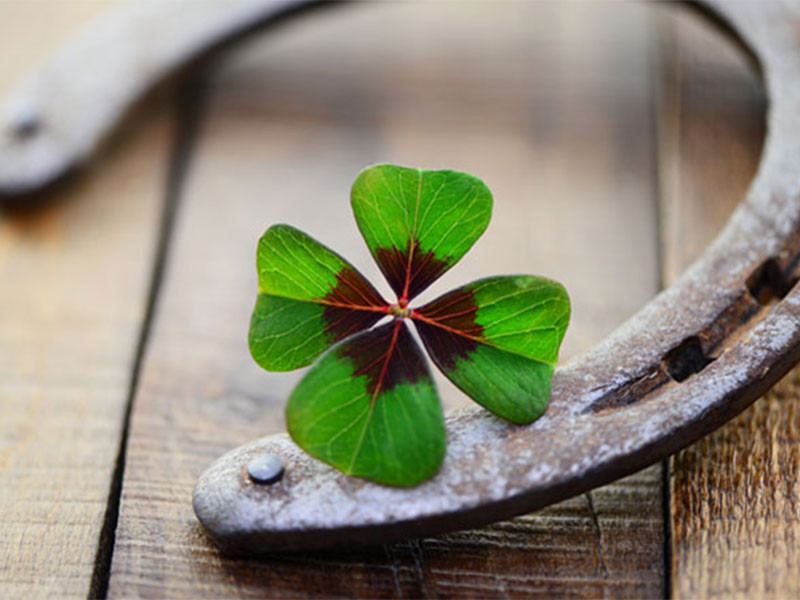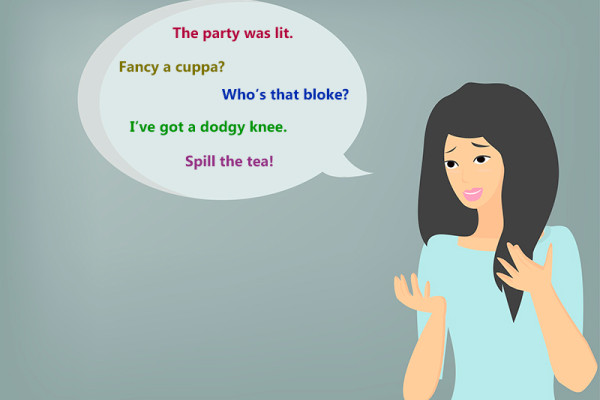10 Superstitions and beliefs of English people

In cultures all over the world there are irrational or unscientific beliefs that have to do mostly with the unknown or with religion. These types of beliefs are called superstitions and are closely related to the topic of good or bad luck.
Most of us, to some extent, have touched wood sometimes when we say that something has never happened to us and we do not want it to happen in the future. I'm sure that when we walk down the street and see an upright ladder on the pavement, we avoid walking under it. These are actions that we do almost without thinking, because they have become part of our popular culture.
Although there will be those who believe in these superstitions, many times it is not a matter of whether or not we believe them, but that they end up being acts that we have learned and incorporated into our lives. However, there is also the possibility that we follow them just in case they really have a positive or negative impact on us.
Many of these superstitions are shared around the world and therefore do not know about borders. Even so, we will focus on some of those the English observe and in most cases so do we.

1. Black cat.
In the Middle Ages, a black cat was associated with witches and warlocks and also with black magic. It is said that it all started when a black cat sneaked into the house where a witch lived. For the English, a black cat brings bad luck if it walks behind you, but if it walks towards you, then it is supposed to bring you good luck.
2. Friday the 13th.
Number thirteen is related to bad luck in many cultures, in fact, in certain buildings there is no thirteenth floor, that is, it goes from the 12th to the 14th; moreover, some airlines do not have a thirteenth row either. It is believed that this superstition comes from when the Last Supper was celebrated in which Judas was the thirteenth apostle. Judas was the one who would later betray Jesus, who ended up being crucified precisely on a Friday. Around this date, horror films have been made, such as the Friday 13th saga. An additional piece of information is that the months of the year that begin on a Sunday, have a Friday 13th.
3. Magpies.
These birds have never had a good reputation because of the various superstitions surrounding them. Several stories are told related to this bird. It seems that it was the only animal that did not want to get on Noah's ark and that was also chattering and laughing while the world was being destroyed. Others say it was the only bird that did not sing when Jesus died on the cross. Be that as it may, it seems that seeing a magpie alone brings bad luck, unless you greet it by saying the following phrase: "Good morning Mr. Magpie, how is your lady wife today?". However, two magpies are said to bring joy and most people search to see another nearby.
4. Shoes
Apparently it is bad luck to put new shoes on a table, as it is said to bring misfortune or death. This superstition dates back to the 19th century in the North of England, where it was customary that when a miner died in a coal mine accident, his shoes were put on the table as a sign of respect and as a means of communicating the sad news to the family.

5. Umbrella
It is not the umbrella itself that brings bad luck, but opening it indoors. There are different theories on the origins of this superstition. One comes from the Egyptians, back then umbrellas were used to protect from the sun and from spirits that could harm them, so if they opened them indoors, that would offend the Sun God. Another theory comes from 18th century London, where umbrellas with metal spokes became popular. These umbrellas were complicated to open, so if they were opened inside houses, they could cause some accidents.
6. Leaves in autumn.
It seems that if you catch a falling leaf in autumn, it is good luck and it prevents you from catching a cold in winter. It is also said that for every leave you catch, you will have a month of luck the following year. It is believed that there was an old couple who lived in the country and that every year in autumn they went to Hyde Park to catch falling leaves in order to avoid colds in winter. Apparently, these old people did not catch colds, and this superstition has since become associated with good luck.
7. White rabbit.
Another superstition to attract good luck is to say "White rabbits, white rabbits" before noon, the first day of each month of the year. The origin of this superstition is not known for sure, but it is mentioned in a book called "Notes and Queries" in the year 1909. It is also said that it was a common belief among RAF bomber crews during World War II that if they said "White rabbits" when they woke up they would be protected.
8. Touching wood
We also share this superstition and it is done or said when we mention something good that we would like to happen in the future and we don't want it to go pear-shaped. There are several theories about the origin of this superstition, one based on a tradition of the Pagans who believed that spirits and other mystical creatures lived in trees. When someone needed to ask spirits for something, they would first make a wish and then touch the bark of the tree twice, the first time to communicate their wish and the second one to say thank you.
9. Ladders
Apart from the superstition that walking under a ladder brings bad luck, it is said that it is also bad luck to pass someone on the stairs. It seems that to avoid bad luck you have to cross your fingers. This superstition comes from a dream described by Jacob in which there was a staircase that went from earth to heaven and by which angels went up and down in order to carry out their tasks. So it was regarded as a sacrilege to unintentionally obstruct an angel while he was doing what God had appointed him to do. It is also said that if one stumbles while climbing up the stairs, it is a sign of good luck; if one stumbles while going down, it is a sign of bad luck.
10. Four-leaf clover.
Another superstition we share with the English is that the four-leaf clover brings good luck. To find a possible explanation for the origin of this belief, we have to go back to 200 BC when the Druids who inhabited the British Isles considered it a sacred symbol since, among other properties, it had the power to see demons.

It seems that each leaf represents a basic component of happiness, so one would represent hope, another love, another faith and another luck. I am sure that on some occasions we all have tried to find a four-leaf clover and we have seen that it is not at all easy, in fact it is said that for every four-leaf clover there are 10,000 with three leaves.
All of us, to a greater or lesser degree, attribute certain results or situations to actions we have performed or objects relied upon before we got what we wanted. Some people have amulets, others put on socks that are supposed to bring good luck, others don't go under a ladder... In short, we acquire irrational behaviour because we need to control certain stressful situations.
At the end of the day, if we think that something will happen to us by acting in a certain way, we are already contributing to that happening.
Artículos relacionados
Comment















